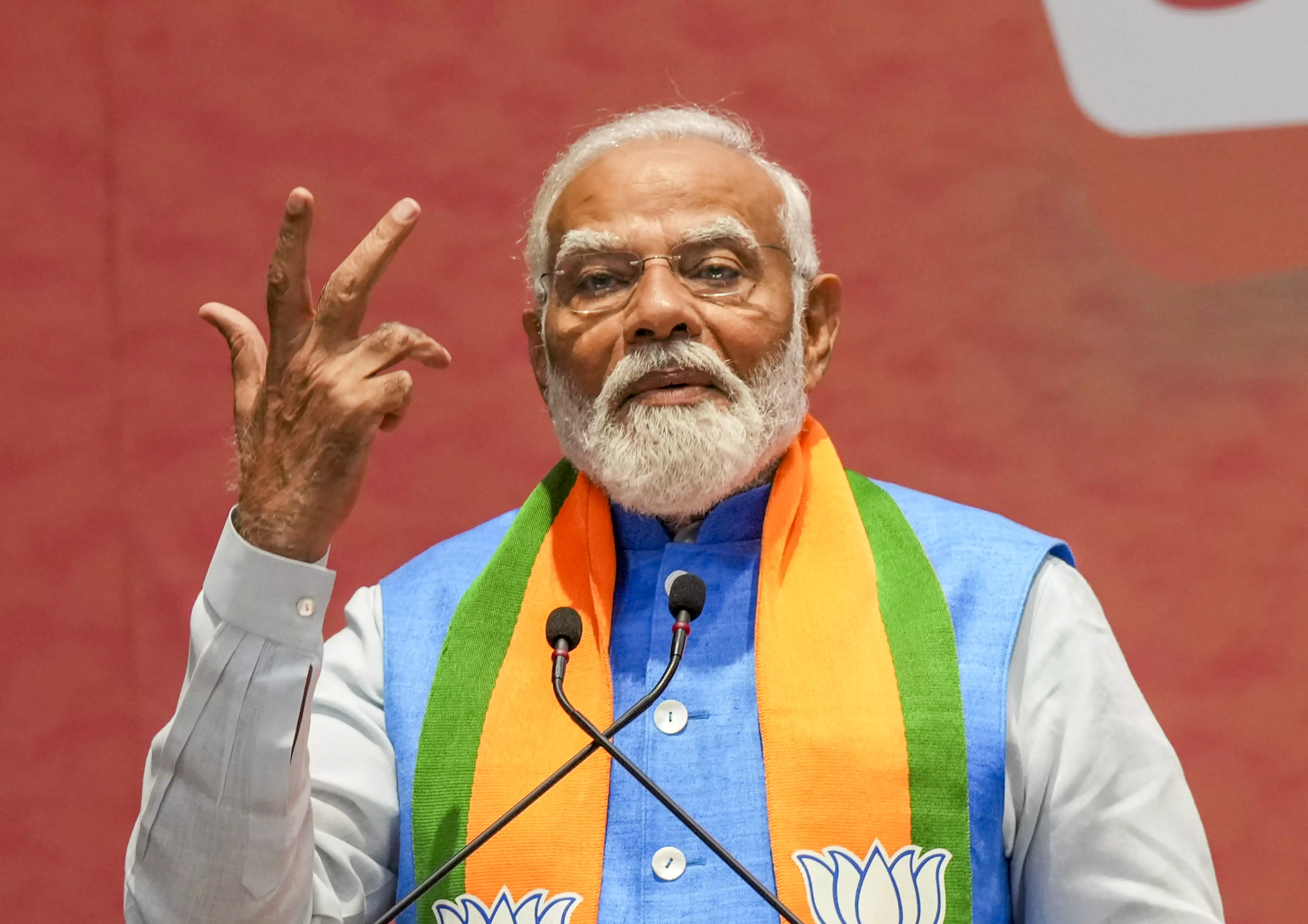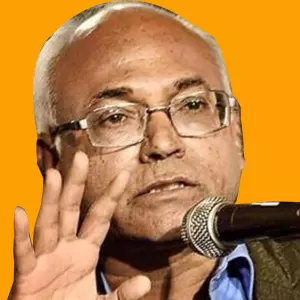
- Home
- India
- World
- Premium
- THE FEDERAL SPECIAL
- Analysis
- States
- Perspective
- Videos
- Sports
- Education
- Entertainment
- Elections
- Features
- Health
- Business
- Series
- In memoriam: Sheikh Mujibur Rahman
- Bishnoi's Men
- NEET TANGLE
- Economy Series
- Earth Day
- Kashmir’s Frozen Turbulence
- India@75
- The legend of Ramjanmabhoomi
- Liberalisation@30
- How to tame a dragon
- Celebrating biodiversity
- Farm Matters
- 50 days of solitude
- Bringing Migrants Home
- Budget 2020
- Jharkhand Votes
- The Federal Investigates
- The Federal Impact
- Vanishing Sand
- Gandhi @ 150
- Andhra Today
- Field report
- Operation Gulmarg
- Pandemic @1 Mn in India
- The Federal Year-End
- The Zero Year
- Science
- Brand studio
- Newsletter
- Elections 2024
- Events
- Home
- IndiaIndia
- World
- Analysis
- StatesStates
- PerspectivePerspective
- VideosVideos
- Sports
- Education
- Entertainment
- ElectionsElections
- Features
- Health
- BusinessBusiness
- Premium
- Loading...
Premium - Events

As an OBC PM, Modi lost his party’s majority mainly because he failed the OBCs during his regime. The Shudra/OBC masses did not benefit and they retaliated by changing the course of this election
The 2024 election results are out.
The radical manifesto of the Congress party that Tamil Nadu Chief Minister MK Stalin had described as the ‘hero’ of the election played a crucial role in stopping the Narendra Modi-led BJP at 240 seats.
In these elections, the Congress made Other Backward Classes (OBC) reservations and protection of the Constitution the main campaign issues. The BJP had no way but to respond to it quite desperately.
However, the Congress and its allies (INDIA alliance) pushed the BJP down below the 272 mark in the election. For the first time in Indian electoral history, the OBC question and the protection of the Constitution played an important role in changing the RSS/BJP’s dictatorial direction in India.
Shudra OBCs
When I say 'OBC' it mainly concerns the Shudra OBCs, not the Dwija OBCs like the Baniyas of northern and western India.
Not many know that in North India, Baniyas also took the OBC certificates and got into the reservation category. However, they never were supporters of the movement for reservation since the 1990. They only used it to their advantage as another avenue for better life.
I focus on Shudra OBCs quite consciously because since the OBC category is constitutionally constructed, it does not have a sociological binding that the OBC reservation should be given to only people belonging to the fourth varna – shudra – who were denied the right to education by the other three varnas (Brahmin, Kshatriyas, Vaisya) ever since the Rigveda was written.
Denied education
Only during British rule did the Shudras get the right to go to properly established schools.
From ancient to post-Independence times, the Shudras were the food producers, tilling the land, advancing the cattle economy and artisanal technology. They were the developers of entire agrarian technology and methods of production all through Indian history.
But the ancient Sanskrit books never recorded that agrarian production knowledge. In fact, Shudra labour does not exist in the Sanskrit books. Yet, they are shown as the mirrors of Indian civilization. The Brahmins, Kshatriyas and Vaisyas kept themselves out of labour and production activity.
In the post-Independence period, the need for looking at the status of all Shudras has become very critical because they are the backbone of the nation.
In many parts of India, they were forced to be educationally backward because of their enslaved history. They were out of Sanskrit, Persian and now English language education, though some castes had landed property and regional language education.
Mandal Commission and Shudras
The Mandal Commission was mainly concerned about the historical Shudras. During the Janata regime, BP Mandal was mandated to prepare a report and grant reservations to the historical Shudras.
The Commission report quotes the Mahabharata, in which the status of the Shudra was nothing but that of a slave. It says, “…The Shudra can have no absolute property, because his wealth can be appropriated by his master”. Who was this master? The Mandal Commission report gave an indication that the ultimate master was the Brahmin.
The modern Shudra’s new status should take the society towards equality.
This is possible only when the Shudra agrarian civilisation gets respectable status in the spiritual system. Brahminism negated that status to agriculture. The Mandal movement was basically meant to take society towards that goal.
Transitional category
The OBC category was only a transitional one, the base identity of all agrarian masses of India is Shudra.
When the Mandal Commission was constituted by the Morarji Desai government there was a vague category called BC (Backward Class) in some states and some kind of state-level reservation was also in existence.
By the 93rd amendment, two new clauses under Articles 15 and 16 of the Constitution enabled reservation for Shudras with new clauses 15(4) and 16(4) by empowering the state to make special provisions for any ‘socially and educationally backward class of citizens’.
Non-Shudra castes
Since the word class was used in the Constitution it was presumed that any other castes with economic backwardness could be brought into this category.
Using this definition of the Constitution several non-Shudra castes like historical Vaisyas and also others managed the OBC certificates in north India from within Hindu religion. Since the four-fold varna or caste system later defined as part of Hindu Religious Social Order several arguments cropped up. Should non-Hindus like Muslims and Christians if they manage caste and economic backward certificate should get reservation in educational institutions and employment?
With a parallel definition to Hindu caste order, Shudra and Dalit converts to Christianity and Islam were also added in the OBC reservation category.
In Telangana and Andhra Pradesh those Shudras and Dalits who got converted to Christianity and Islam are also given a small percentage of reservation. For example, in these states converted Christians would get 1 per cent reservation and Muslims 4 per cent reservation. But Brahmin or Vaisyas who convert to Christianity do not get this reservation.
BJP's attack on Muslim-based reservation
The BJP attacked this caste, religion and economic backwardness leverage, given to Muslims as religion based reservation and accused the Congress as anti-OBC. During the election campaign, Modi promised the Hindu OBCs that the Muslim reservation will be cancelled once the BJP comes to power for a third term.
In certain media circles using the historical category ‘Shudra’ to refer to all those agrarian artisanal communities, which are outside the frame of Dalit/Adivasis on the one hand, and Dwijas, on the other, is being negated.
There is a view that it is a derogatory category hence certain castes like Nairs in Kerala are against including them in that category. They have to define themselves where they would be historically. Are they part of Kerala Brahmins? Were they not agrarian food producers historically?
No doubt they are better educated than other Shudra upper communities in the country.
The OBCs of Kerala like Ezawas were arguing that they should not clubbed in the historical fourth Varana, Shudra. They are Avarnas. But the Avarna and Savarna categories do not make any sense. Avarna and Savarna concepts do not deal with labour and production issues.
Political compulsions
Shudra is a labour related concept. Historically, the Shudras were forced to do agrarian labour without any rights. But the labour itself is neither indignified nor unholy. In any given society labour should be more respected than pooja. Without doing pooja, societies can survive but without labour societies cannot survive.
The Shudra/OBC castes are huge in number. They constitute roughly about 52 per cent of the population of India. The Congress lost the ability to win the election on its own after the 1990 Mandal movement because it was seen as anti-OBC. Nehru’s opposition to Kakakalelkar report, Indira Gandhi’s opposition to Mandal report and Rajiv Gandhi’s opposition to implementation of Mandal report by the VP Singh government made the Shudra/OBCs think that the Congress would not support their education and employment causes.
Though in 2006 it implemented the Mandal 27 reservation in the central universities and institutes, it bent to the Dwija pressures to add 27 per cent seats by taking the admissions to 127 per cent.
The RSS/BJP remained silent about such pro-Dwija adjustment of reservations then. However, it realised that the only way to come to power in 2014 was to bring Modi, whose caste was included in the central OBC list, as Prime Minister. They know that Modi was trained in Sanatana Dharma ideology, who would not own up the Shudra heritage. Anyone who accepts Sanatana Dharma would not like to de-castise the society, as the core structure of Sanatana Dharma is caste system.
In this election, the BJP lost the mandate and Modi should have resigned on moral grounds. As OBC Prime Minister he lost his party’s majority mainly because he failed the OBCs during the last ten years. During his regime the monopoly houses, where there is no single OBC, benefited but not the Shudra/OBC masses.
(The Federal seeks to present views and opinions from all sides of the spectrum. The information, ideas or opinions in the articles are of the author and do not reflect the views of The Federal.)


